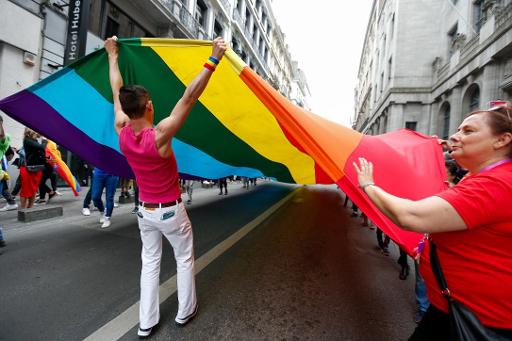Following the brutal murder of a gay man in Belgium, Brussels MPs are calling for an accelerated approach to the city’s coalition agreement to prevent homophobic violence.
“I think it's very tragic that we have to wait for such a horrible thing to happen,” MP Juan Benjumea told The Brussels Times. “Maybe now there is a higher sense of urgency to react and to do something about it - to see how we can speed up the plans as much as possible and be critical of the things we did in the past that didn’t work.”
The plan in question is a regional agreement made back in 2017 to “fight against all forms of violence and discrimination,” including through special training of police officers aimed at teaching them how best to handle sensitive situations involving victims of hate crimes or sexual violence.
But the training was only compulsory for six agents: the SPOC, or Special Point of Contact, for each zone.
“It’s not sufficient to have just six people in all of Brussels,” said Benjumea, who thinks such training would be more effective if it were integrated into the police academy.
Another part of the plan involved the creation of an app that would allow victims to make reports anonymously.
While anonymous reports wouldn’t necessarily be able to be resolved, they would give police a more accurate overview of the issue without requiring victims to come forward and name themselves or become involved in a lengthy prosecution process.
One such app was introduced in 2013 with great success, but disappeared not long after. Another was created in 2019, but hasn’t seen the same levels of use.
“In the past there have been plans, but every time they do this, like with the app, it disappears after a few years. We want something for the long term.”
Related News
- Gay couple has home vandalised
- Alleged killers in homophobic hate crime were all teenagers
- Dead man found in park may be victim of hate crime
- More arrests made in connection to homophobic hate crime
- European Parliament declares EU an LGBTIQ freedom zone
What Benjumea and MP Marie Lecocq are promoting is an accelerated approach of the plan with a few changes, emphasising that it must be put into action by June at the latest.
They’re proposing that people’s ability to first report crimes involving verbal or physical altercations online and then be contacted by an officer for a follow-up later (something that began when the coronavirus pandemic started in order to avoid forcing people out of quarantine and into police stations) be made permanent.
“Ensuring that victims can report the crime in an accessible way, from the smallest incident, is extremely important,” Benjumea said. “One of the problems was that you had to do it in person anytime it had to do with verbal or physical violence. We knew that for women and queer people, it was very difficult to do so. You never know if they're going to take you seriously, or what kind of remarks police would make or questions they’d ask.”
Also on the list of changes is a call for more plainclothes police patrols in areas known to be hot spots for discriminatory crime, as police are doing to target sexual harassment on the streets.
Ultimately, the goal is to ensure that Brussels’ action plan against homophobic violence is effective, consistent, and reviewed often.
“Everyone is conscious that this is an important problem,” said Benjumea. “Everyone deserves to be free and safe in the city.
Helen Lyons
The Brussels Times

